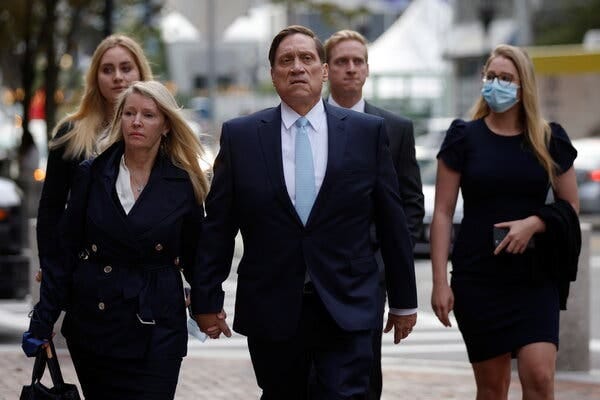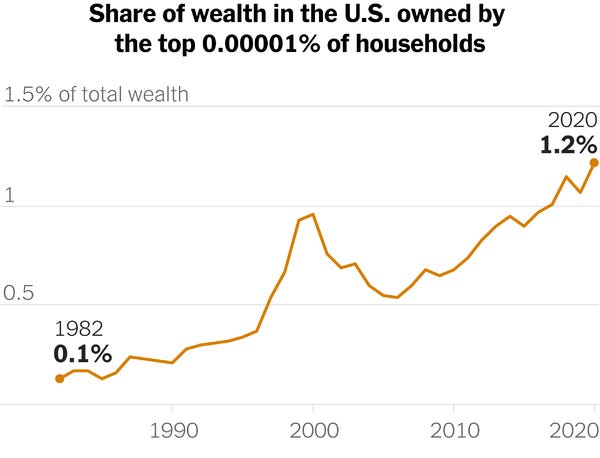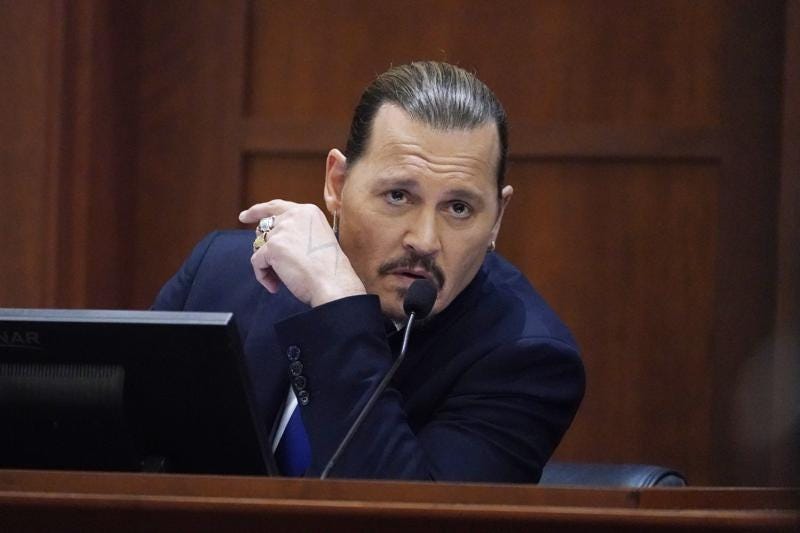The Full Belmonte, 4/26/2022
© Associated Press / Ringo H.W. Chiu, file | Tesla CEO Elon Musk, 2019
“Twitter accepted Elon Musk’s roughly $44 billion takeover bid. The two sides worked through the night to hash out a deal in which the Tesla chief executive, who is one of Twitter’s most influential users, plans to take the social-media company private. The takeover, if it goes through, would mark one of the biggest acquisitions in tech history and would likely have global repercussions for years to come, including possibly reshaping how billions of people use social media.” Read more at Wall Street Journal
What changes at Twitter under Musk?
“Twitter is a micro-blogging platform that Elon Musk, the richest person in the world, says is a digital town square that will improve after he closes his ownership agreement reached on Monday with the company’s board to spend about $44 billion and take it private.
Twitter’s ownership upheaval might have been a techie market-focused sidebar, except that the owner will be Musk, often described as the inscrutable CEO of Tesla and innovator behind SpaceX. Twitter, founded in 2006, caters to more than 206 million users on a planet with nearly 8 billion humans, but they are some of the noisiest, most opinionated, most famous, thought-shaping and bottom-feeding minds in any language.
News of the sale moved markets, prompted hand-wringing in Congress, sparked U.S. and European regulatory questions, and rumbled through the political world, where social media megaphones are loved and loathed.
Former President Trump, who was kicked off Twitter for false and misleading tweets and incitement of violence, called Musk ‘a good man’ who could improve the platform, but he said he would not return to Twitter, where he once had more than 80 million followers (Fox News). Needless to say, some Trump advisers don’t believe him (The Washington Post).
The Hill’s Alexander Bolton reports that on Capitol Hill, progressives anticipate that Musk’s new acquisition will mobilize lawmakers who favor breaking up Big Tech companies. Senate Judiciary Committee Chairman Dick Durbin (D-Ill.) said Musk’s vision of a global town square and his interest in freedom of speech prompt an easy first question: Is ‘the message board going to include Donald Trump?’
Sen. Mazie Hirono (D-Hawaii), also a Judiciary Committee member, who in 2020 described Trump supporters as ‘very anti-immigrant and white supremacist,’ voiced a similar concern on Monday. She said she believes social media platforms have ‘the responsibility … to do a better job of keeping out the lies’ (HuffPost).
The announced deal at $54.20 per share, which had been building for weeks, sparked shirt-rending and speculation on Twitter, where else? The new billionaire owner added to the intrigue.
‘Free speech is the bedrock of a functioning democracy. … Twitter has tremendous potential,’ Musk said in a tweet and statement included in the company’s press release.” Read more at The Hill
“Four people died and nine more were wounded Monday in the Russian shelling of the Donetsk region , the region's governor Pavlo Kyrylenko said Tuesday. Two of the victims were children: a girl, 9, and a boy, 14, Kyrylenko said in the messaging app Telegram. In other news, Ukrainian forces have repelled six attacks in the past 24 hours in the two regions that comprise the Donbas, Ukraine's industrial heartland, the General Staff said Tuesday. The Staff says Russian forces continue offensive operations in the country's east in an effort to take full control of the Donetsk and Luhansk regions and establish a land corridor to Crimea. Meanwhile, Russian Foreign Minister Sergei Lavrov warned Monday that Ukraine risks provoking World War III and said the threat of a nuclear conflict ‘should not be underestimated.’ On Monday, President Joe Biden announced that he will appoint Bridget Brink as the U.S. ambassador to Ukraine, filling a position that has been vacant for three years.” Read more at USA Today
“The Supreme Court’s conservative justices seemed sympathetic Monday to a former high school football coach who lost his job after leading postgame prayers at midfield, but the path to a decision is complicated by both the coach’s actions and the school district’s purported reason for disciplining him.
Joseph A. Kennedy’s lawyer said the assistant coach was asking only for a private moment to take a knee and express gratitude to God on the gridiron after a game. But lawyer Paul D. Clement acknowledged that Kennedy’s actions at Bremerton High School near Seattle had at times gone far beyond that, including leading players and others in prayer.
And Richard B. Katskee, representing the Bremerton school district, said officials had an obligation to protect students from being coerced into religious activity they did not want. But justices said that might be rationalization, because the officials’ complaint to Kennedy was that his actions would be seen as government speech, violating constitutional commands against government endorsement of religion….
The case brings complicated questions about the ability of public employees to live out their faith and the government’s competing responsibility to protect schoolchildren from coercion and to remain neutral on the subject of religion. It calls for examining the interplay between the First Amendment’s establishment clause, which forbids government endorsement of religion, and its free speech and free exercise clauses, which prohibit government restraints on the private observance of religion.” Read more at Washington Post
“CNN has obtained 2,319 text messages that former President Donald Trump's White House chief of staff Mark Meadows sent and received between Election Day 2020 and President Joe Biden's January 20, 2021 inauguration. The text messages, which Meadows selectively provided to the House committee investigating the Capitol riot, show how Trump's inner circle, supporters and Republican lawmakers worked behind the scenes to try to overturn the election results. The messages also reveal how Trump’s family members reacted to the violence at the US Capitol during the insurrection.” Read more at CNN
“A New York judge held Donald Trump in contempt of court and fined him $10,000 a day. The judge cited what he said was the former president’s failure to comply with the state attorney general’s subpoena in a civil-fraud probe that is looking into whether Trump or his company made false or misleading statements for financial gain. Trump’s lawyers had said some of the requested materials didn’t exist, but the judge rejected that argument. Trump, a Republican, has denied any impropriety and said the probe by Letitia James, a Democrat, is politically motivated.” Read more at Wall Street Journal
“The Supreme Court will hear oral arguments Tuesday over President Joe Biden’s effort to suspend a Trump-era policy requiring asylum seekers to wait in Mexico while their cases are considered. The appeal brings former President Donald Trump's ‘remain in Mexico’ policy back before the justices, only months after a majority said the Biden administration did not properly shut down the controversial program and ordered immigration officials to reinstate it. Immigration has resurfaced as a key election controversy as the Biden administration comes under fire for attempting to end a related policy known as Title 42, in which migrants are rapidly expelled from the USA without legal review. Though the two programs are based on different laws, experts say the Supreme Court's ruling in Biden v. Texas may have implications for Title 42.” Read more at USA Today
Children play as families live in tents the Movimiento Juventud 2000 shelter with refugee migrants from Central and South American countries including Honduras and Haiti seeking asylum in the United States, as Title 42 and Remain In Mexico border restrictions continue, in Tijuana, Baja California state, Mexico on April 9, 2022.PATRICK T. FALLON, AFP via Getty Images
“The U.S. is about to hit one million reported Covid-19 deaths. Especially hard hit are the elderly, in particular those in nursing homes, and the Black and Hispanic communities. Epidemiologists say the true death toll from the pandemic is likely even higher, reflecting missed diagnoses, especially in the early period when the disease was new and tests were scarce.” Read more at Wall Street Journal
“The FDA approved the first COVID treatment for children under 12. Remdesivir will be available for kids who test positive, are at least 7 pounds and are hospitalized or at high risk.” Read more at Axios
“The White House is beginning a campaign to get more doses of Paxlovid, a drug that reduces the risk of COVID hospitalization by 90 percent, into the hands of more Americans. The campaign not only involves making more pills available, but educating Americans about the option.” Read more at NPR
Hugo Lowell in Washington DC
Marjorie Taylor Greene: ‘The only way to save our Republic is for Trump to call Marshall [sic] law.’ Photograph: Getty Images
“Days before Joe Biden’s presidential inauguration, Republican congresswoman Marjorie Taylor Greene appeared in a text to White House chief of staff Mark Meadows to press for Donald Trump to overturn his 2020 election defeat by invoking martial law, new messages show.
The message – one of more than 2,000 texts turned over by Meadows to the House select committee investigating January 6 and first reported by CNN – shows that some of Trump’s most ardent allies on Capitol Hill were pressing for Trump to return himself to office even after the Capitol attack.
‘In our private chat with only Members several are saying the only way to save our Republic is for Trump to call Marshall [sic] law,’ Greene texted on 17 January. ‘I just wanted you to tell him. They stole this election. We all know. They will destroy our country next.’
The message about Trump potentially invoking martial law, earlier reported by CNN on Monday and confirmed by the Guardian, came a month after the idea had been raised in a heated Oval Office meeting a month before, where Trump considered ways to overturn the 2020 election.
Meadows did not appear to respond to Greene’s text. But the messages Trump’s top White House aide was receiving shows the extraordinary ideas swirling around Trump after he and his operatives were unable to stop the certification of Biden’s election win on January 6.
Greene – one of Trump’s fiercest far-right defenders on Capitol Hill – also texted Meadows days before the Capitol attack asking about how to prepare for objections to Biden’s win at the joint session of Congress, the text messages show.
‘Good morning Mark, I’m here in DC. We have to get organized for the 6th,’ Greene wrote on 31 December. ‘I would like to meet with Rudy Giuliani again. We didn’t get to speak with him long. Also anyone who can help. We are getting a lot of members on board.’
That text message from Greene, who had not yet been sworn in as a member of Congress, a week before the Capitol attack also underscores her close relationship with the Trump White House and an extraordinary level of coordination to obstruct Biden being certified as president.
But the text messages that Meadows did not turn over to the select committee – as opposed to the communications he agreed to produce for the investigation – were perhaps more notable as the panel investigates connections between the White House and the Capitol attack.
The panel is aware, for instance, that Meadows had contacts through December 2020 and January 2021 with organizers of the Save America rally at the Ellipse that descended into the Capitol attack as well as with Trump campaign officials, say sources close to the inquiry.
Yet none of the text messages Meadows produced to the select committee through a cooperation deal agreed last year and in response to a subpoena show any such contacts, raising the specter that he might have deliberately withheld some communications.
The former White House chief of staff appears to have ultimately turned over no text messages between 9 December and 21 December, a critical time period in the lead-up to the Capitol attack during which a number of key moments took place.
Meadows appeared to be aware of efforts by the White House and others, for instance, to send fake Trump slates of electors to Congress. The idea was to have ‘dueling’ slates of electors force then-vice president Mike Pence to discount those votes and return Trump to office.
That scheme – which the select committee believes was coordinated in part by the Trump White House, the sources said – appeared to occur on 14 December, the deadline under the Electoral Count Act for states to send electoral college votes to Congress.
Meadows also was in close contact with Trump’s attorney Rudy Giuliani and others after the contentious Oval Office meeting with Trump on 18 December, as he sought to bar onetime Trump campaign lawyer and conspiracy theorist Sidney Powell from the White House.
But Meadows appears to have turned over no text messages from that crucial period, as allies of the former president started to set their sights on January 6, including the Stop the Steal movement that started to plan a protest at the Capitol around that time.
The seeming omission may be explained in part by the fact that Meadows was communicating about those plans on his personal cell phone – against which the select committee issued a subpoena contested by Meadows in federal court as ‘overly broad’.
The absence of messages between 9 December and 21 December may also be explained more straightforwardly by the fact that Meadows did not receive any messages during that period. Meadows’ lawyer could not immediately be reached for comment.
House investigators are not convinced they have been given all the text messages relevant to their subpoena, according to one source with knowledge of the matter, and expect to continue pursuing Meadows’ documents and personal communications in court.
In a motion for summary judgment with respect to Meadows’ records, the select committee said in a 248-page court filing late on Friday that it believed Meadows’ claims for withholding material from the investigation on grounds of executive privilege were baseless.” Read more at The Guardian

“Lawyers for a private equity investor and a former casino executive facing federal prison in the college admissions scandal known as Operation Varsity Blues filed appeals on Monday seeking to have their convictions overturned.
Both men were accused of making payments to have their children admitted to elite universities as athletic recruits, even though prosecutors charged that they lacked qualifications to play Division 1 sports.
The men, John B. Wilson and Gamal Abdelaziz, face the longest sentences yet imposed on parents in the admissions scandal, in which more than 50 parents and college coaches were prosecuted for conspiring with William Singer, a college admissions counselor, to arrange ‘side door’ admissions, primarily by using slots on athletic teams.
Mr. Wilson and Mr. Abdelaziz make similar arguments in their appeals — that donations to universities in an effort to secure admissions are commonplace and do not constitute bribery.” Read more at New York Times

“A Tennessee prosecutor dropped all criminal charges on Friday against Pamela Moses, a Memphis woman with a previous felony conviction who was sentenced to six years and one day in prison in January after she tried to restore her right to vote in 2019.
The voter fraud conviction from her trial was thrown out in February after a judge ruled that the Tennessee Department of Correction had improperly withheld evidence that was later uncovered by The Guardian. Ms. Moses had been set to appear in court on Monday to find out whether prosecutors would pursue a retrial.
But Ms. Moses will no longer face a second trial ‘in the interest of judicial economy,’ Amy Weirich, the district attorney of Shelby County, said in a statement. Ms. Moses spent 82 days in custody on this case, ‘which is sufficient,’ Ms. Weirich said. Ms. Moses is also permanently barred from registering to vote or voting in Tennessee. Ms. Weirich declined to comment further on the case.
The sentencing of Ms. Moses, who is Black, had spurred outrage among voting rights supporters who said that the case highlighted racial disparities in the criminal prosecution of voting fraud cases and opaque voting restoration rights laws that sow confusion and leave many people with felony convictions unsure of their rights.” Read more at New York Times
“Militant outreach | The Islamist al-Shabaab militant group has set up a special committee to help people in Somalia deal with the most severedrought in decades as it threatens the lives of millions of people. As Simon Marks reports, the move could bolster its ranks and raises the risk of intensifying a violent insurgency in the Horn of Africa nation and further afield.” Read more at Bloomberg
“Pyongyang parade | Kim Jong Un presided over a military parade in North Korea’s capital where he vowed to speed up the development of his atomic arsenal as his regime rolled out its nuclear-capable weapons designed to strike the U.S. and its allies in Asia. The celebration of the 90th anniversary of the founding of the state’s army came as Kim looks to ratchet up tensions by conducting its first nuclear test since 2017.” Read more at Bloomberg
“Sri Lankan President Gotabaya Rajapaksa and the cabinet are putting in motion plans to reduce his wide-ranging powers as opponents gained momentum in their push to oust his family over mismanagement of the economy.” Read more at Bloomberg
“Austin convenes Ukraine meeting. U.S Secretary of Defense Lloyd Austin convenes a diverse group of defense leaders, formally known as the Ukraine Defense Consultative Group, at the U.S. Air Force base in Ramstein, Germany, today. According to documents reviewed by Breaking Defense the invite list included 43 countries, including non-NATO members Israel, Kenya, and Japan.” Read more at Foreign Policy
“U.N. procedures under scrutiny. Permanent U.N. Security Council members will be asked to justify their use of vetoes if a draft resolution brought forward by Liechtenstein passes a U.N. General Assembly vote today. The draft resolution is co-sponsored by 50 nations, including the United States, but not by any of the other four permanent council members: Russia, China, France and the United Kingdom. The move is seen as a tactic to pressure Russia, which has used the veto more than any other permanent council member.
If the measure passes, the assembly will convene ‘within 10 working days of the casting of a veto by one or more permanent members of the Security Council, to hold a debate on the situation as to which the veto was cast,’ according to draft text seen by AFP.” Read more at Foreign Policy
“The world’s military spending. Global military expenditure passed the $2 trillion mark for the first time in 2021, according to new figures released by the Stockholm International Peace Research Institute (SIPRI) on Monday. The $2.1 trillion figure represents a 0.7 percent increase on the previous year. The United States remains the largest military spender worldwide, contributing to 38 percent of the global total.” Read more at Foreign Policy
“NATO’s newest members? Sweden and Finland will submit simultaneous applications to join the NATO alliance as soon as the middle of May, according to reports in local media. As FP’s Robbie Gramer reported on Friday, the two countries can expect an easy, but not instant, entrance process, with all 30 current NATO members needing to approve the move.” Read more at Foreign Policy
“Australian Prime Minister Scott Morrison is running out of time to improve support ahead of a May 21 election, with new opinion polling showing his center-right Liberal National Coalition badly trailing the opposition Labor Party.” Read more at Bloomberg
“Mexico’s government is seeking a pact with private companies to limit price increases of basic items to tame inflation that has failed to budge from two-decade highs.” Read more at Bloomberg
The billionaires’ world
“Two years ago, the economists Emmanuel Saez and Gabriel Zucman published a statistic that you don’t normally see. It was the share of wealth owned by the richest 0.00001 percent of Americans.
That tiny slice represented only 18 households, Saez and Zucman estimated. Each one had an average net worth of about $66 billion in 2020. Together, the share of national wealth owned by the group had risen by a factor of nearly 10 since 1982.
Source: Emmanuel Saez and Gabriel Zucman
This wealth conveys vast power on a small group of people. They can attempt to shape politics, as the Koch family has done. They can create a global charity, as Bill Gates and Melinda French Gates have done. They can buy a national media organization, as Jeff Bezos has done.
Or they can buy a social media network when its policies annoy them, as Elon Musk is in the process of doing.
Twitter announced yesterday that its board had accepted a $44 billion bid for the company from Musk, the chief executive of Tesla and SpaceX and currently the world’s richest man. He is using $21 billion of his own cash in the deal.
Musk, who calls himself a ‘free speech absolutist,’ has suggested that he will be less aggressive than Twitter’s current management about blocking some content — including misinformation, in all likelihood. He plans to take the company private, which will give him tighter control than he would have over a public company.
The deal is the latest example of how extreme inequality is shaping American society. A small number of very wealthy people end up making decisions that affect millions of others. That has always been true, of course. But it is truer when inequality is so high. In the U.S. economy, wealth inequality has exceeded even the peaks of the 1920s, as another chart from Saez and Zucman’s research shows:
Source: Emmanuel Saez and Gabriel Zucman
The Musk deal also recalls the Gilded Age, as my colleague Shira Ovide wrote: ‘The closest comparison to this might be the 19th-century newspaper barons like William Randolph Hearst, Joseph Pulitzer and the fictional Charles Foster Kane, who used their papers to pursue their personal agendas, sensationalize world events and harass their enemies.’
After news broke yesterday about the Musk-Twitter agreement, I asked Andrew Ross Sorkin for his reaction to it. Andrew, as many readers know, has been covering finance and business leaders for the past two decades at The Times. He created and runs our DealBook newsletter.
Andrew’s response got me thinking about these larger questions of inequality, and I’m turning over the rest of today’s lead item to him. Below his thoughts about the Twitter deal, we include more Times coverage, as well as analysis from elsewhere.
Friends and foes
Musk’s acquisition of Twitter will reignite big questions about the influence of the billionaire class and the power of technology over our national discourse.
This month, Musk was complaining that Mark Zuckerberg, Meta’s founder, had too much power, arguing that the way Meta was structured, ‘Mark Zuckerberg the 14th’ would someday be running it.
Now Musk will own Twitter outright as a private company. He will report to himself. So if he decides to allow Donald Trump back on the platform — which seems like the elephant in the room — it will be Musk’s choice and his choice alone. (Trump has claimed he will not return, because he wants to support his own social media platform.)
Washington is atwitter trying to understand Musk’s ideology. He is a self-styled libertarian without an ideology. But is not having an ideology an ideology unto itself?
Musk has said he wants more ‘free speech’ and less moderation on Twitter. What will that mean in practice? More bullying? More lewd commentary and images? More misinformation?
Perhaps a window into Musk’s approach is a tweet he sent on Friday making fun of Bill Gates with a crude reference to anatomy, as a way to get even with Gates, who had admitted to betting against shares of Tesla.
Which raised this question: When conspiracy theorists falsely posted that Gates was paying to develop Covid vaccines to implant chips in people, Twitter down-ranked the content and added fact-check notices. If Musk were running Twitter then, would he have left those posts up to needle his nemesis?
The deal will give Musk enormous influence over politicians, celebrities and the media, with the ability to platform and de-platform them at will.
But some will have sway over him, too, in ways that could distort what the public sees on Twitter. For example, Twitter has no presence in China. Musk does: A huge chunk of Tesla’s growth is dependent on that country. What happens when Chinese officials tell him to remove content from Twitter that they find objectionable?
Back here in the U.S., Musk’s SpaceX business relies, in large part, on contracts with the Defense Department. His Tesla business is in discussions with the U.S. government about a national charging station infrastructure. His Boring Company, which digs tunnels, relies on governments for contracts. If a politician that controls the purse strings for any of Musk’s companies were to publish misinformation, would Musk remove it?
There are no answers to these questions just yet. But we will find out soon. Likely on Twitter.
Times coverage
Twitter employees worry the takeover may undo years of work cleaning up the platform’s toxic corners.
Conservatives celebrated the deal.
While Musk is worth more than $200 billion, most of that is in Tesla stock. Here’s how he will pay for Twitter.
Musk’s tweets offer hints about what he might change, including a spambot crackdown.” Read more at New York Times
“The U.S. military is expanding its benefits for parents — both birth and non-birth. Policies will include a 365-day deferment from any continuous duty longer than one normal day for soldiers giving birth or undergoing fertility treatment, and more benefits for breastfeeding parents.” Read more at NPR
“In a not-so-subtle dig against Florida’s recent attempts to ban books, activist Chaz Stevens has petitioned schools to ban the Bible for mentions of rape and bestiality.” Read more at NPR
“FAIRFAX, Va. (AP) — Actor Johnny Depp concluded a grueling four days on the witness stand Monday, telling jurors in a calm voice that he filed his libel lawsuit against his ex-wife because it was his best chance to reclaim his reputation, just hours after they heard audio clips of him berating his wife with coarse vulgarities.
‘It was the only time I was able to fight back and use my own voice,’ Depp said of his decision to sue Amber Heard for a 2018 op-ed piece in The Washington Post in which she refers to herself as ‘a public figure representing domestic abuse.’
He continued to deny that he ever hit Heard, and accused her of hitting him and throwing items including paint cans and vodka bottles at him. And jurors heard an audio clip of a conversation between Depp and Heard in which she seems to taunt him and suggests he won’t be believed or respected if he were to publicly cast her as an abuser.” Read more at AP News
“The actor Alec Baldwin is seen practising drawing his revolver on the set of the Rust movie in footage released by the Santa Fe county sheriff’s office.
The department has released all files relating to its continuing investigation into the fatal shooting of the cinematographer Halyna Hutchins on the set of the western.
Hutchins was killed on the set of the movie in October last year after a prop gun Baldwin was holding was discharged. The footage with the actor drawing the gun was reportedly taken the same day as the incident.
The film’s director, Joel Souza, was also wounded in the shooting on the Bonanza Creek ranch set near Santa Fe.” Read more at The Guardian
“The Boston Celtics eliminated the Brooklyn Nets in the first round of the N.B.A. playoffs.” Read more at New York Times
Kyodo/Reuters
“Kane Tanaka, the world's oldest person, has died. She attributed her long life to family, sleep, hope and faith.” Read more at NPR
“119 — The age of the world’s oldest verified living person, who died of old age April 19 in a hospital in Fukuoka, Japan, a local official said. Kane Tanaka was born on Jan. 2, 1903, before the Wright brothers flew the first powered airplane.” Read more at Wall Street Journal

“Laura Harris Hales, who turned her own quest for enlightenment on thorny issues faced by her church, the Church of Jesus Christ of Latter-day Saints, into books and a podcast said to have been downloaded millions of times, died on April 13 at her home in Kaysville, Utah. She was 54.
Her husband, Brian C. Hales, said the cause was pancreatic cancer.
The Haleses maintained a website, Joseph Smith’s Polygamy, devoted to examining that contentious aspect of the history of the church and its 19th-century founder. In 2015 they co-wrote a book on the subject, ‘Joseph Smith’s Polygamy: Toward a Better Understanding.’ In 2016 Ms. Hales compiled and edited ‘A Reason for Faith: Navigating LDS History and Doctrine,’ a book of essays by church scholars whose chapters include ‘Race, the Priesthood and Temples,’ ‘Joseph Smith’s Practice of Plural Marriage’ and ‘Homosexuality and the Gospel.’
But Ms. Hales found an even bigger audience when, in 2017, she created the podcast ‘Latter-day Saint Perspectives,’ which she recorded, edited and hosted. In 130 episodes, before she closed it out last year, the podcast brought on experts to talk about aspects of church history and doctrine.
Some of the episodes were light, like one on Joseph Smith’s dog. But most took a serious look at topics that might be confusing or troubling to church members. “Homosexuality and the Gospel,”“The L.D.S. Church and the Sugar Industry” and “A Global History of Blacks and Mormonism” were among the episode titles.” Read more at New York Times






![Marjorie Taylor Greene: ‘The only way to save our Republic is for Trump to call Marshall [sic] law.’ Marjorie Taylor Greene: ‘The only way to save our Republic is for Trump to call Marshall [sic] law.’](https://substackcdn.com/image/fetch/w_1456,c_limit,f_auto,q_auto:good,fl_progressive:steep/https%3A%2F%2Fbucketeer-e05bbc84-baa3-437e-9518-adb32be77984.s3.amazonaws.com%2Fpublic%2Fimages%2F9ed606ba-7b6e-4f93-bcac-e5457c0add4f_930x558.jpeg)




